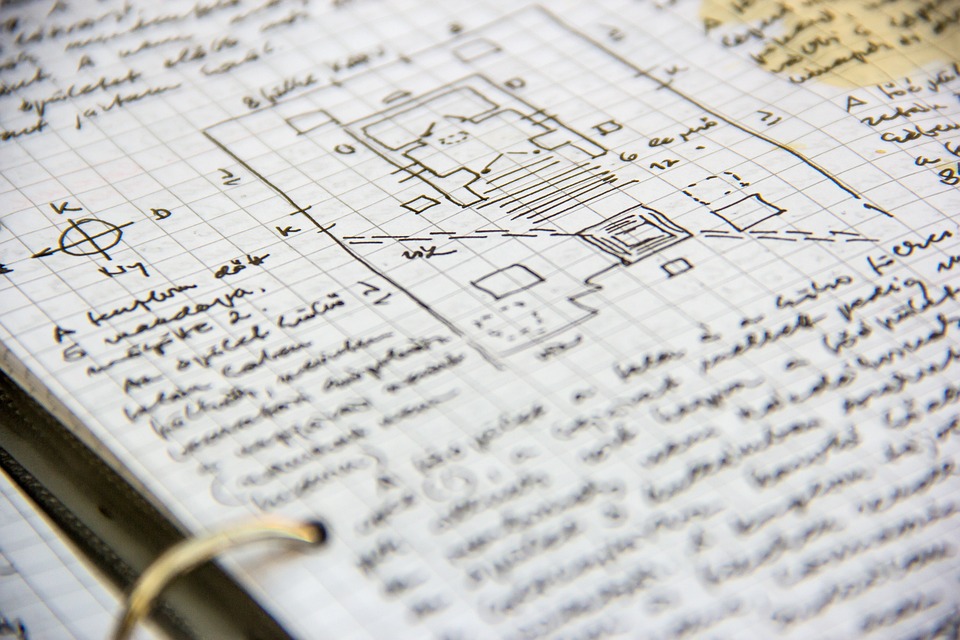[ad_1]
1. That you can get somewhere positive by defeating something negative.
When we act to improve our lives by defeating some aspect of ourselves (for example, “an old, unwanted behavior pattern,” or a recurring issue of “self-sabotage”) who is it, exactly, who wins?
One of the most enduring and unfortunate delusions to come out of the personal growth movement (especially the “monster power growth” version of it) is the idea that we all contain a “strong self” that can be trained to compel the subjugation of our “weak self.” It is completely understandable that almost all of us develop this impression. Human beings have been trying to make meaning out of their internal conflicts, their affinity with the light or dark sides of things, with their distresses related to virtue and guilt, for tens of thousands of years-long before the invention of the personal growth weekend seminar, as far as we know.
The easiest way to allow personal change and growth is to include-not to exclude or defeat-whatever it is that is not working in our lives. We can recognize that unwanted patterns of behavior are simply old solutions that have unwittingly outlasted their usefulness. Actually, when we go beyond this-when we seek to actively respect whatever it is that seems to be causing us the most pain and frustration-the experience of including and changing even long-standing patterns becomes safe, fun, and rewarding. Our old patterns are much more available for easy, comfortable change when we do not fight against them. In fact, when they are respected properly, we find that old, unwanted behaviors usually seek to change themselves. It’s as if they want to catch up with the rest of us, and that makes for a wonderful, and defeat-free, reunion.
2. That people who take the “path of least resistance” in life are weak.
Everything in the Universe is coordinated to move and change along paths of least resistance. Everything-electrons, inter-galactic clouds of hydrogen gas, white mice, and melting ice. There are no exceptions. So, it is curious and weird that, for humans, the words “taking the path of least resistance” are usually tossed out as in insult. Now, we are all getting gradually better about this. One is rarely congratulated about the pointlessness and intensity of one’s struggle any more. Still, who do we think we are, anyway?
3. That fighting ourselves shows strength and builds character.
Some of the saddest words are, “At least I respect myself enough to despise myself.” Proper self-regard is always the most courteous way to be in life and the universe. It invites the best for and from others. Too little self-respect provokes other humans to want to withdraw their care and support. They can’t help but feel this at some level. It is an ancient instinct in our hunter-gatherer DNA, a not-quite-knowing designed to protect the well-being of the whole troupe. The instinct can be overridden, and it often is, but to do this requires some energy and work. Proper self-respect is never costly or inconvenient for anyone. And, it is hardly ever fatal.
4. That denying and disrespecting our parents is a good idea.
Almost all of western psychotherapy seeks, in one way or another, to separate clients from their parents. This movement is in exactly the wrong direction. If we want to know what would come out of the mix if we put our parents into a giant blender and then hit the frappè button, the answer is-we would exist. We are exactly, precisely that combination.
Our broadband connection to the flow of life-the cable sockets themselves, so to speak-happens to be them. Not personally, necessarily, but certainly energetically, the sockets are where they are. We can deny this, but then we have to live on dial-up. When we deny parents, we deny ourselves and cut ourselves off from the sources of strength in life. This never has a good effect. If our parents are dangerous, crazy, or lethally boring, it is probably a good idea to stay away from them physically, but this is not the same as disrespecting them.
5. That you as an intelligent adult would never, ever mess your life up in order to prevent something really bad from happening to someone else 100 years ago (just to cite a round number).
As it turns out, this seems to be exactly what all of us humans value doing more than anything else. We are-all of us-driven to make sure that we experience some version of the tragedies and unresolved losses of the family members who came before us. As long as we experience their pain, or something closely like it, we have hope to provide our families with a better past, which, it follows very [il]logically, will allow us to experience a better present and future for ourselves. This is complicated business, and highly seductive. When our pain now signals us that we are on track toward past and future happiness, we go into a deep, deep trance of secure and loving family salvation. As crazy as this sounds, this is what we do, and are pretty much screwed until we start to catch on. Messing up our own life is never a good way to show respect for anyone.
6. That the past is a failed version of a better future.
The future is not a perfected or improved past. Our experiences as human beings, whatever this involves in the moment, always represent the very best life solutions that our systems have been able to achieve. We all deal with utterly mysterious and painful inherited patterns, which we then combine with the bafflingly elusive meanings and beliefs we invent for ourselves. However huge the resulting mess might seem to be, it is truly the most creative, positive, and loving solution we could find for ourselves (and for everyone else who was involved) at the time that the unwanted patterning became hyper-stabilized and hard to change. Truly, we are all doing the best we can with what we have, and with what we had.
7. That now is the only time there is.
Being present in the present is wonderful and useful. It’s an indispensable art, an essential part of changing our relationship with ourselves and with life itself. However, for humans who live in time/space, the future and past are real too. Properly created, a good future activates our choosing of it, so that it comes into manifestation against a supportive backdrop called the past. There is no substitute for having a good relationship with our future and our past. After all now, we are now our future’s past, are we not?
8. That your brain is supposed to care about how you feel.
Our brain’s main function is to filter out everything that doesn’t fit its own ideas about what fits with its ideas. Consequently, it is always very busy not noticing things. However, the good result of this is that it provides us with a stable, more-or-less predictable world in which to live.
To make the experience of being human even more fun, the older, most reliable parts of our brains-our creature brains, which don’t even know that they are parts of human beings-have only one important success indicator, one way to tell if they are doing a good job. This part of the brain doesn’t think, analyze, create, synthesize or talk. It is simply there to establish and maintain associations between this and that. It doesn’t care what this and that are, as long as the associations are intact. Thus, it does not care about the content of our human experience; it only cares that that content (the associations between this and that) do not change. Consequently, its most important success indicator is the answer to the question, “Are we dead yet?” If the answer is no, it knows to keep on with whatever it has been doing. If this happens to involve our being miserable in life, at the human level, that is not its problem, nor even its concern.
Our brain is not supposed to care how we feel. We are supposed to care how we feel.
9. That positive change will inevitably lead to more positive change.
Most really wonderful, positive change can eventually lead to feeling bad again. There are some beautiful ways of working with this unfortunate aspect of being human, so that it is not actually always true good change leads to feeling bad. However, for most of us, learning to allow wonderful change to stay positive takes a little practice. This is what we call “the ecology of personal growth.” It is quite an art form, and an extremely valuable thing to learn.
10. That our private thoughts and feelings do not affect the experience of other people.
Everything we think and feel affects all the space, all the time. We really do have this kind of huge effect. Having power like this is never a bad thing. Learning to recognize and use this power is a many lifetimes’ respectfully creative journey. Overall, this is pretty good news.
© 2008 Carl Buchheit and NLP Marin
[ad_2]
Source by Carl Buchheit



